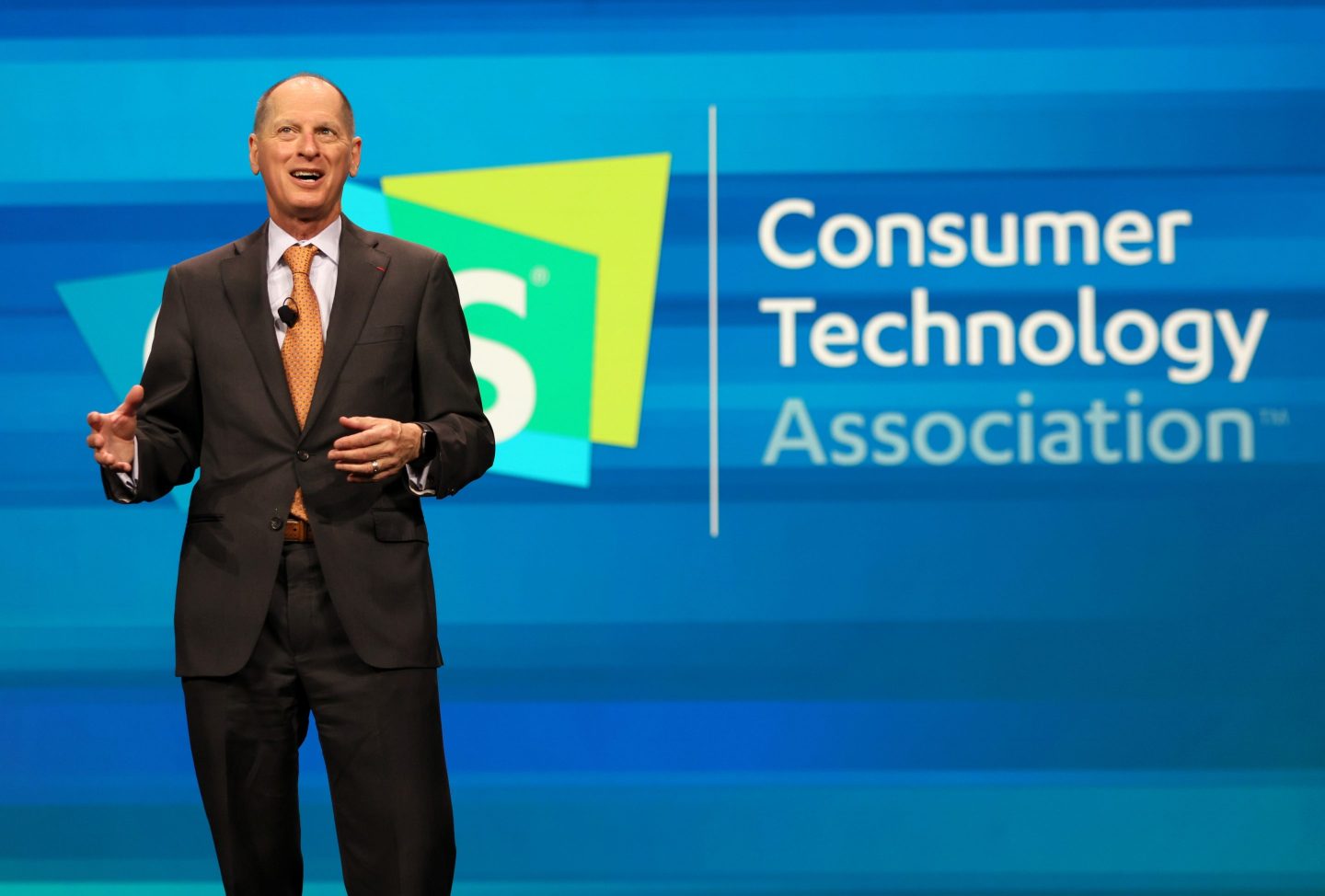
新企業(yè)是全球經(jīng)濟增長的秘密武器,它們能夠促進創(chuàng)新,顛覆各行各業(yè)。全球初創(chuàng)公司共創(chuàng)造了近3萬億美元價值(超過法國的GDP),并吸引了數(shù)以十億計美元的風(fēng)險投資。但錢并不是關(guān)鍵。初創(chuàng)公司可以帶來科技進步,讓我們的生活變得更輕松、更安全、更有效率。
然而,隨著經(jīng)濟學(xué)家和首席執(zhí)行官們紛紛預(yù)測經(jīng)濟衰退,按照一位投資者的說法,指向初創(chuàng)公司的“資金水龍頭”正在接近干涸。隨著風(fēng)險投資減緩和消費者支出減少,初創(chuàng)公司和新企業(yè)感受到了壓力,但這并不意味著科技行業(yè)即將進入寒冬。
事實上,經(jīng)濟困境時期是精明的初創(chuàng)公司脫穎而出的機會。目前知名度最高的多個科技平臺都誕生于2008年至2009年經(jīng)濟衰退之后。當(dāng)時,創(chuàng)新者和創(chuàng)業(yè)者不得不冒險調(diào)整商業(yè)模式。
如果你在工作日閱讀本文,它可能就是通過Slack推送給你。這家公司就誕生于2009年。WhatsApp和Instagram也是在2008年經(jīng)濟衰退最嚴(yán)重的時候成立。
你可能會想,這些公司當(dāng)然能夠幸存下來,因為它們規(guī)模龐大!但在經(jīng)濟衰退期間成功的不止是那些家喻戶曉的知名品牌。2008年,Goal Zero的創(chuàng)始人羅伯特·沃克曼推出了公司的第一款產(chǎn)品——一款便攜式太陽能發(fā)電設(shè)備。現(xiàn)在,該公司的產(chǎn)品已經(jīng)銷往全世界,為非洲、南亞和加勒比地區(qū)的村莊以及美國遭遇自然災(zāi)害之后缺電的地區(qū),帶來照明和電力。
對許多創(chuàng)始人來說,成功也意味著被收購。2008年,連續(xù)創(chuàng)業(yè)者卡邁克爾·羅伯茨參與創(chuàng)建了柔性電子傳感器生產(chǎn)商MC10。十多年后,這家公司將數(shù)字生物標(biāo)記物業(yè)務(wù)出售給醫(yī)學(xué)科技巨頭Medidata,將可穿戴傳感器的應(yīng)用領(lǐng)域拓展到臨床研究。
因此,對于那些對科技業(yè)未來感到悲觀的人們,我想說:你錯了。科技創(chuàng)業(yè)者已經(jīng)習(xí)慣了應(yīng)對似乎難以應(yīng)付的挑戰(zhàn)。科技行業(yè)就是應(yīng)該大刀闊斧地解決問題。
事實上,即使在繁榮周期,依舊會有75%的初創(chuàng)公司未能償還投資者的資本。創(chuàng)建和發(fā)展一家新公司是一項巨大的挑戰(zhàn)。成功者都有一個共同點:擁抱變革和推動業(yè)務(wù)轉(zhuǎn)型的能力與意愿。初創(chuàng)公司的創(chuàng)業(yè)者有一種“忍者心態(tài)”,這種心態(tài)可以幫助一家公司順利度過動蕩的市場環(huán)境,了解客戶的需求,并迅速抓住機會。
2021年,全球最有影響力的科技界活動消費電子展(CES)改為虛擬形式,事后有人質(zhì)疑我們?yōu)槭裁催€要決定舉辦線下活動。雖然有些公司選擇不到拉斯維加斯參加線下活動,但絕大多數(shù)的參展商,尤其是初創(chuàng)公司和小企業(yè)表示,消費電子展對它們的業(yè)務(wù)至關(guān)重要。
初創(chuàng)公司的謹(jǐn)慎是自然的反應(yīng),尤其是在艱難時期。但過度謹(jǐn)慎可能讓你錯失發(fā)展業(yè)務(wù)和推廣能夠改變生活的技術(shù)的機會。不要將糟糕的經(jīng)濟環(huán)境作為退縮的借口。相反,要擁抱變革,并學(xué)會迅速調(diào)整。(財富中文網(wǎng))
本文作者加里·夏皮羅(Gary Shapiro)現(xiàn)任消費者技術(shù)協(xié)會(Consumer Technology Association)總裁兼首席執(zhí)行官、《紐約時報》(New York Times)的暢銷書作家。消費者技術(shù)協(xié)會是美國1,500多家消費者技術(shù)公司的行業(yè)組織。他是《未來忍者:新創(chuàng)新時代的成功秘訣》(Ninja Future: Secrets to Success in the New World of Innovation)一書的作者。本文僅代表作者的個人觀點。
Fortune.com上發(fā)表的評論文章中表達的觀點,僅代表作者本人的觀點,不代表《財富》雜志的觀點和立場。
翻譯:劉進龍
審校:汪皓
新企業(yè)是全球經(jīng)濟增長的秘密武器,它們能夠促進創(chuàng)新,顛覆各行各業(yè)。全球初創(chuàng)公司共創(chuàng)造了近3萬億美元價值(超過法國的GDP),并吸引了數(shù)以十億計美元的風(fēng)險投資。但錢并不是關(guān)鍵。初創(chuàng)公司可以帶來科技進步,讓我們的生活變得更輕松、更安全、更有效率。
然而,隨著經(jīng)濟學(xué)家和首席執(zhí)行官們紛紛預(yù)測經(jīng)濟衰退,按照一位投資者的說法,指向初創(chuàng)公司的“資金水龍頭”正在接近干涸。隨著風(fēng)險投資減緩和消費者支出減少,初創(chuàng)公司和新企業(yè)感受到了壓力,但這并不意味著科技行業(yè)即將進入寒冬。
事實上,經(jīng)濟困境時期是精明的初創(chuàng)公司脫穎而出的機會。目前知名度最高的多個科技平臺都誕生于2008年至2009年經(jīng)濟衰退之后。當(dāng)時,創(chuàng)新者和創(chuàng)業(yè)者不得不冒險調(diào)整商業(yè)模式。
如果你在工作日閱讀本文,它可能就是通過Slack推送給你。這家公司就誕生于2009年。WhatsApp和Instagram也是在2008年經(jīng)濟衰退最嚴(yán)重的時候成立。
你可能會想,這些公司當(dāng)然能夠幸存下來,因為它們規(guī)模龐大!但在經(jīng)濟衰退期間成功的不止是那些家喻戶曉的知名品牌。2008年,Goal Zero的創(chuàng)始人羅伯特·沃克曼推出了公司的第一款產(chǎn)品——一款便攜式太陽能發(fā)電設(shè)備。現(xiàn)在,該公司的產(chǎn)品已經(jīng)銷往全世界,為非洲、南亞和加勒比地區(qū)的村莊以及美國遭遇自然災(zāi)害之后缺電的地區(qū),帶來照明和電力。
對許多創(chuàng)始人來說,成功也意味著被收購。2008年,連續(xù)創(chuàng)業(yè)者卡邁克爾·羅伯茨參與創(chuàng)建了柔性電子傳感器生產(chǎn)商MC10。十多年后,這家公司將數(shù)字生物標(biāo)記物業(yè)務(wù)出售給醫(yī)學(xué)科技巨頭Medidata,將可穿戴傳感器的應(yīng)用領(lǐng)域拓展到臨床研究。
因此,對于那些對科技業(yè)未來感到悲觀的人們,我想說:你錯了。科技創(chuàng)業(yè)者已經(jīng)習(xí)慣了應(yīng)對似乎難以應(yīng)付的挑戰(zhàn)。科技行業(yè)就是應(yīng)該大刀闊斧地解決問題。
事實上,即使在繁榮周期,依舊會有75%的初創(chuàng)公司未能償還投資者的資本。創(chuàng)建和發(fā)展一家新公司是一項巨大的挑戰(zhàn)。成功者都有一個共同點:擁抱變革和推動業(yè)務(wù)轉(zhuǎn)型的能力與意愿。初創(chuàng)公司的創(chuàng)業(yè)者有一種“忍者心態(tài)”,這種心態(tài)可以幫助一家公司順利度過動蕩的市場環(huán)境,了解客戶的需求,并迅速抓住機會。
2021年,全球最有影響力的科技界活動消費電子展(CES)改為虛擬形式,事后有人質(zhì)疑我們?yōu)槭裁催€要決定舉辦線下活動。雖然有些公司選擇不到拉斯維加斯參加線下活動,但絕大多數(shù)的參展商,尤其是初創(chuàng)公司和小企業(yè)表示,消費電子展對它們的業(yè)務(wù)至關(guān)重要。
初創(chuàng)公司的謹(jǐn)慎是自然的反應(yīng),尤其是在艱難時期。但過度謹(jǐn)慎可能讓你錯失發(fā)展業(yè)務(wù)和推廣能夠改變生活的技術(shù)的機會。不要將糟糕的經(jīng)濟環(huán)境作為退縮的借口。相反,要擁抱變革,并學(xué)會迅速調(diào)整。(財富中文網(wǎng))
本文作者加里·夏皮羅(Gary Shapiro)現(xiàn)任消費者技術(shù)協(xié)會(Consumer Technology Association)總裁兼首席執(zhí)行官、《紐約時報》(New York Times)的暢銷書作家。消費者技術(shù)協(xié)會是美國1,500多家消費者技術(shù)公司的行業(yè)組織。他是《未來忍者:新創(chuàng)新時代的成功秘訣》(Ninja Future: Secrets to Success in the New World of Innovation)一書的作者。本文僅代表作者的個人觀點。
Fortune.com上發(fā)表的評論文章中表達的觀點,僅代表作者本人的觀點,不代表《財富》雜志的觀點和立場。
翻譯:劉進龍
審校:汪皓
New businesses are the secret sauce for economic growth, catalyzing innovation, and shaking up industries. Globally, startups create nearly $3 trillion in value (more than the GDP of France) and attract billions?in venture capital funding. And it’s not just about the money. Startups are also responsible for driving tech advances that make our lives easier, safer, and more productive.
However, with economists and CEOs predicting a recession ahead, the “firehose of money” pointed at startups, as one investor put it, is drying up. As VC funding slows, and consumers cut back on spending, startups and new businesses are feeling the pressure–but that doesn’t mean winter is coming for the tech industry.
In fact, tough economic times can be a differentiator for savvy startups. Several of today’s most recognizable tech platforms launched in the aftermath of the 2008-2009 recession, which forced innovators and entrepreneurs to take risks and adapt their business models.
If you’re reading this op-ed during the workday, it may have come your way via Slack–a company that got its start in 2009. WhatsApp and Instagram were also created at the height of the 2008 recession.
You may be thinking, well, of course, these companies survived–they’re huge! But it’s not just the big household names that found success in a recessionary period. In 2008, Goal Zero founder Robert Workman launched his company’s first product, a portable solar power generator. The company has since deployed its products across the globe, bringing light and power to villages in Africa, South Asia, and the Caribbean, as well as areas of the U.S. living without power after natural disasters.
For many founders, success can also mean acquisition. In 2008, serial entrepreneur Carmichael Roberts co-founded MC10, a manufacturer of flexible electronic sensors. Just over a decade later, the company sold its digital biomarker business to medtech giant Medidata, expanding the use of wearable sensors for clinical research.
So to those who are pessimistic about the future of our industry, I say: You’re getting it wrong. Tech founders are used to tackling seemingly impossible challenges. Our industry is meant to hack its way out of problems.
The reality is that even in a boom cycle, some 75% of startups will fail to return investors’ capital. Building and scaling a new company is a major challenge. Those that succeed all have one thing in common: the ability and willingness to embrace change and transform their business. Startup founders have a “ninja mindset” that allows a company to navigate a volatile market environment, understand what their customers want, and capitalize on opportunities at lightning speed.
After CES, the world’s most influential technology event went all-virtual in 2021, skeptics questioned our decision to move ahead with an in-person event. And while some companies chose not to join us in Las Vegas, overwhelmingly, exhibitors–particularly startups and small businesses–cited the CES platform as critical to their business.
It’s natural for startups to be cautious, especially when times get tough. But being too cautious can mean missed opportunities to grow your business and propel life-changing technologies forward. Don’t use a bad economy as an excuse to pull back. Instead, embrace change and learn to pivot fast.
Gary Shapiro is president and CEO of the Consumer Technology Association (CTA), the U.S. trade association representing more than 1,500 consumer technology companies, and a New York Times bestselling author. He is the author of the book Ninja Future: Secrets to Success in the New World of Innovation. His views are his own.
The opinions expressed in Fortune.com commentary pieces are solely the views of their authors and do not reflect the opinions and beliefs of Fortune.






